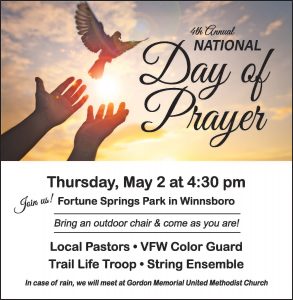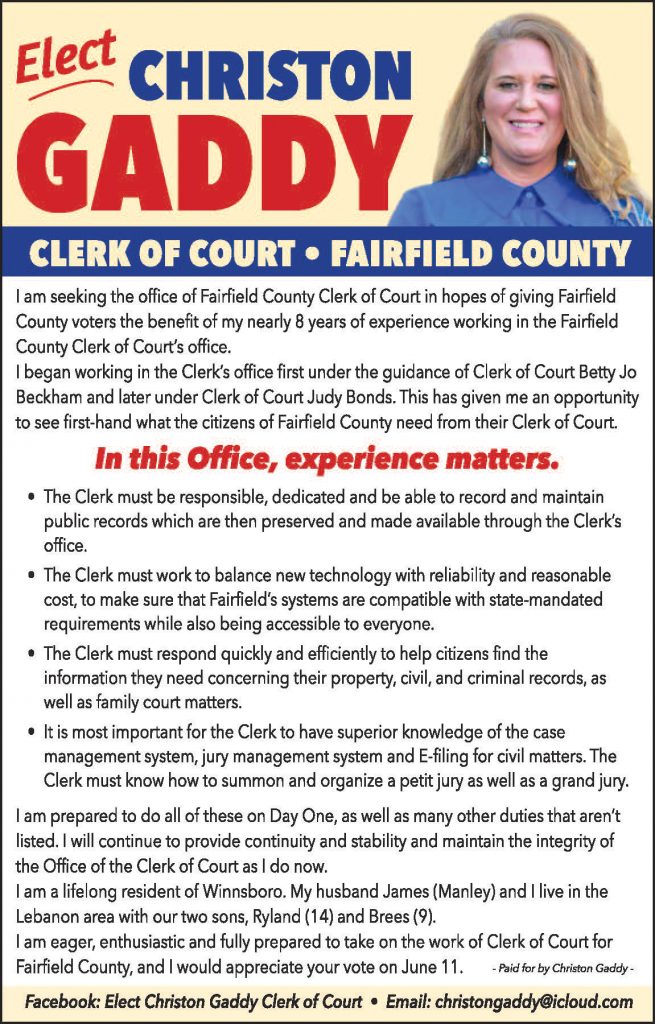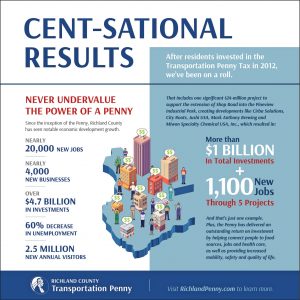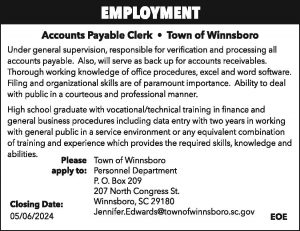WINNSBORO – While County Council continues to pore over what they are billing as a ‘no tax-increase’ budget, an item to emerge during last week’s discussions has put that definition to the test.
“There is actually a statutory difference between a ‘fee’ and a ‘tax’,” Interim Administrator Milton Pope told The Voice after Monday’s County Council meeting.
A ‘tax,’ Pope said, goes into the general fund of a governing entity, to be comingled with other funds and used at the discretion of that entity. A ‘fee,’ he said, is assigned to the specific use for which it was adopted by ordinance.
The fee in question is the proposed road maintenance fee and will be part of the County’s 2015-2016 budget ordinance, which cleared second reading Monday night. Council is considering a $5 fee on personal vehicles and a $10 fee on commercial vehicles, to be tacked onto Fairfield County car tax bills. Pope said he estimates $125,000 a year can be raised by the fees, which will be used for maintenance and dust treatment of the County’s dirt roads as well as maintenance of the County’s smaller paved roads.
“When we met with the CTC (County Transportation Committee), they mentioned to us we needed to look at providing maintenance dollars for County improved roads – not County resurfaced roads – because they are not to DOT (Department of Transportation) standards,” Pope told Council during a May 7 budget work session. “The other portion of what those fees would be used for would be those things that are associated with maintenance on roads – not only patching and that type stuff – but treatments for dust control and those types of things on our dirt roads.”
Council Chairwoman Carolyn Robinson (District 2) said during the May 7 work session that dust treatment work had backed up over the years, with at least one project shelved last year for lack of money. And while the budget ordinance, which includes the new fee, has sailed through the first two of its three readings, it is unclear if the fee aspect has the full support of the entire Council.
Although voting with his colleagues to pass the first two readings, Councilman Kamau Marcharia (District 4) called the proposed fee a game of semantics.
“You can call it a ‘fee’ if you want to,” Marcharia told The Voice Tuesday, “but it’s still a tax.”
Councilman Billy Smith (District 7), also voting to pass the first two readings of the budget ordinance, has indicated that he was still on the fence regarding the proposed roads maintenance fee.
“I would feel more comfortable before we take a sense of Council on the road fee to get some other questions answered and see if any other Council members have any other recommendations for cuts in other areas,” Smith said during the May 7 work session. “I would be more comfortable voting for such a fee if we could offset the cost in other areas.”
Budget Notes
Council upped the ante on Pope’s recommendation of $4,000 for the Chameleon Inspirations Learning Center, bumping the allocation up to $5,250. The non-profit that provides tutoring services and after-school and summer programs for children in kindergarten through grade six had requested $6,500 in County funds for the 2015-2016 fiscal year.
“Anything for children at that tender age, if we could help them get their character together,” Marcharia said, “something like that we should support.”
Robinson said such allocations should require at least a semi-annual report from the beneficiary, and on the suggestion of Councilman Marion Robinson (District 5), Council agreed to require quarterly reports.
Council approved Pope’s recommendation of $5,000 for the Boys and Girls Club of the Midlands, which serves Fairfield County with after-school and summer programs. The allocation had raised questions from Council when Council learned the School District was charging the club rent for use of District facilities.
Dr. J.R. Green, Superintendent of Schools, told The Voice this week that he had contacted the Boys and Girls Club and that the rent fees were standard for all facilities the club utilizes. Rent was not required by the District, Green said, but was instead an incentive proposed by the club at all locations.
Council also debated during the May 7 work session a cost of living increase for non-Council elected officials and their staff.
“We have to have those offices,” Chairwoman Robinson said. “The state does supplement the treasurer and the auditor, but it’s a pittance. I know it’s been at least four or more years since any employees have had a cost of living increase. To me that justifies a cost of living increase.”
Pope recommended the pay increase, and suggested Council could implement an annual Consumer Price Index (CPI) increase.
But Smith balked at a pay raise for elected offices, although he said he supported a raise for their staff.
“For the elected officials, regardless of the Consumer Price Index, they knew what the salary was when they ran and they don’t have to run again,” Smith said.
Four of the seven Council members, including Mary Lynn Kinley (District 6), agreed. However, during Monday night’s brief continuation of the May 7 work session, Kinley asked Council to hold off on a final decision until the administration could present a comparison with other counties.
“We need to keep a good relationship with our elected officials,” Kinley said Monday. “I’d like to see what other counties, neighboring counties and counties our size, do first.”
Smith also suggested Council forgo reimbursement for home internet service and cell phones. Currently, Council members can be reimbursed up to $175 a month for those costs. The notion died, however, when the majority agreed with Kinley to leave to each individual Council member the decision on whether or not to seek reimbursement for those expenses.
Council’s next budget work session is scheduled for May 28 at 6 p.m.












